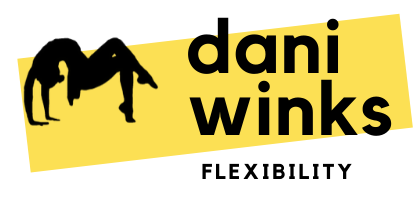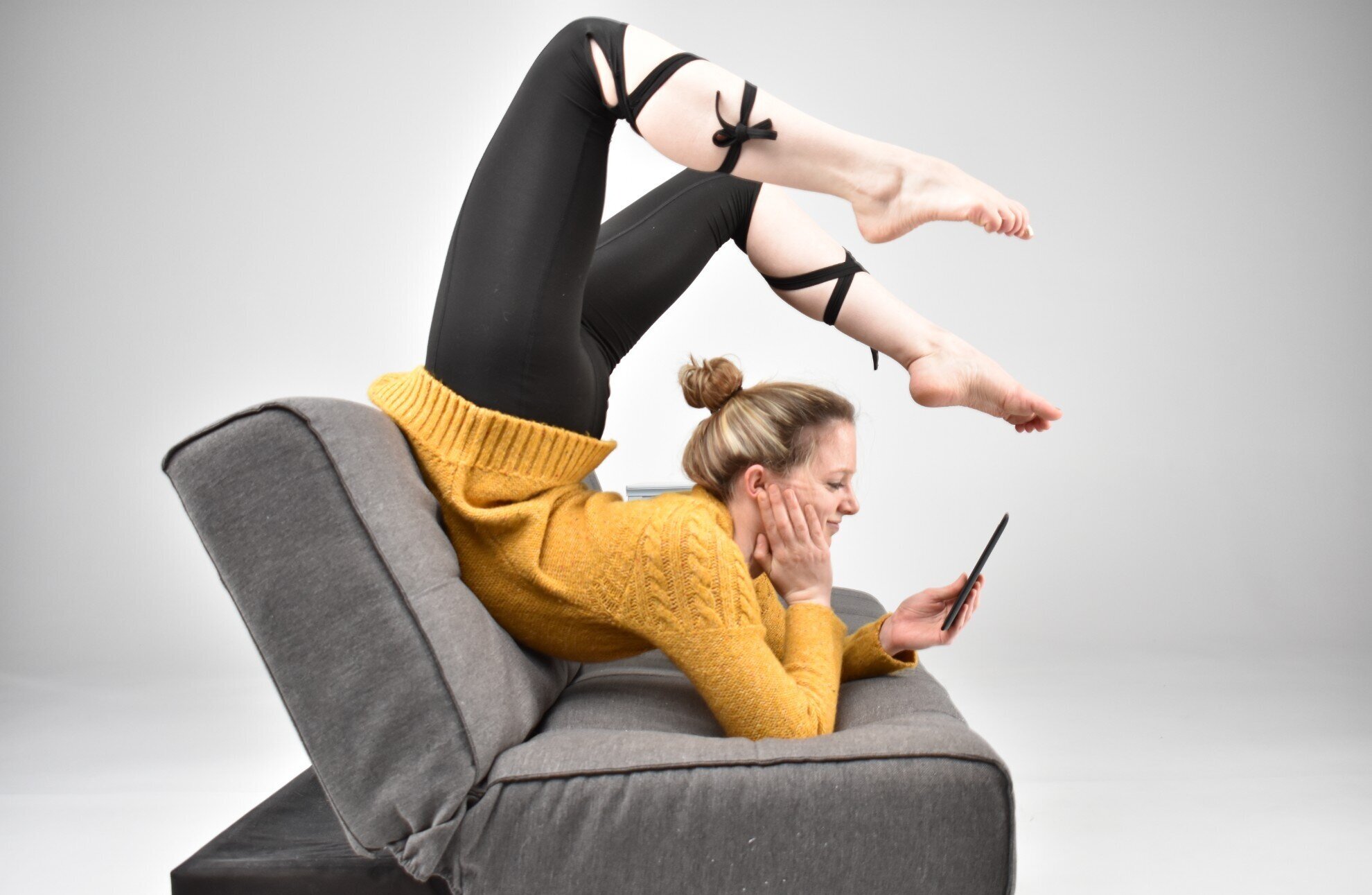TIPS, TRICKS & HOW-TOs
The Bendy Blog: Flexibility Training Articles
Filter posts by topic:
All Posts / Bridges / Contortion / Front Splits / General Back Flexibility / General Flexibility Tips / General Lower Body Flexibility / Middle Splits / Neurodynamics / Shoulders / Straddles / Yoga /
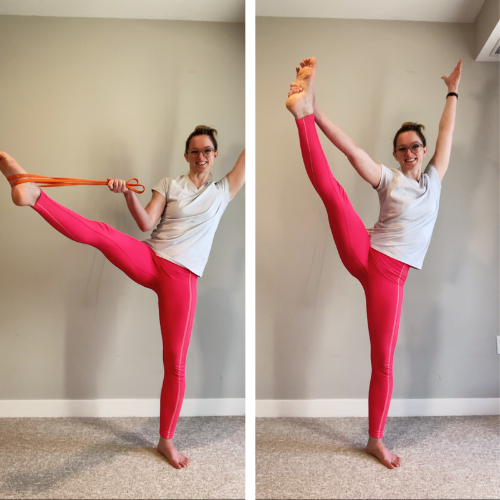
How to Do a Y Scale Leg Hold
A standing side leg hold, often called a “Y Scale” in the contortion world, is a fun (and impressive!) standing balance that showcases leg flexibility. Unlike a “regular” standing split, a Y Scale is an open split position that allows for both turn-out in the hips, and a tilt of the hips to maximize how high we can lift our leg.
Let’s look at two ways to do this pose: both the traditional standing variation, as well as an easier-to-balance variation lying on the floor.
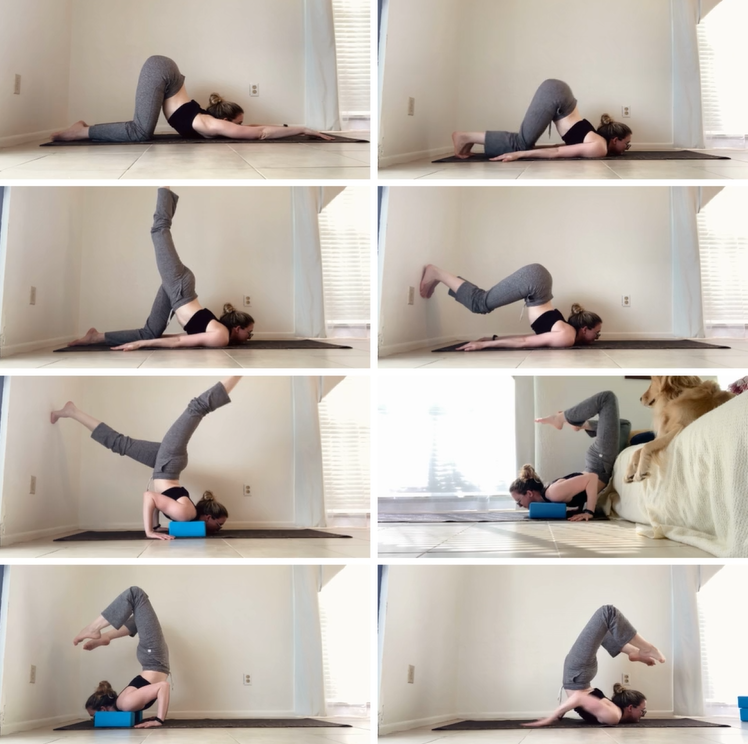
Example Chest Stand Training Progression
A chest stand is arguably the most iconic contortion pose, requiring extreme levels of back flexibility (from the neck, upper and lower back), as well as incredible core control. It’s no wonder so many students dream to be able to one day do a chest stand! In this post we’ll take a peek into what a skill progression might look like on your journey to this magical trick.
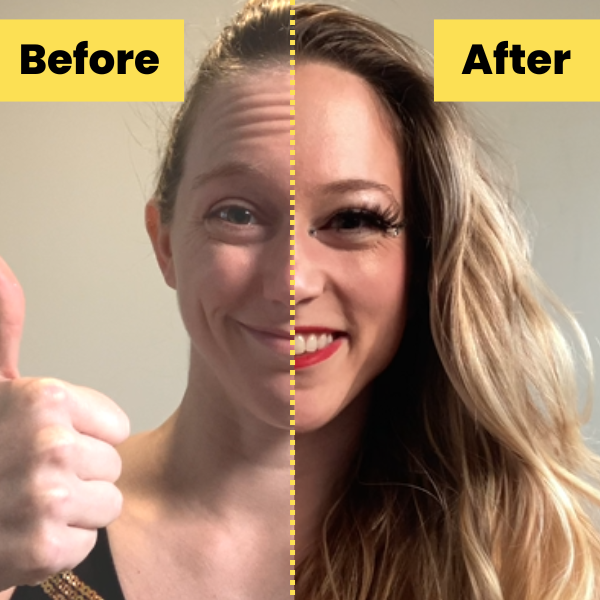
Easy Contortion Performance Makeup for People Who Are Crap at Makeup
I was never very “good” at makeup, so stage/performance makeup was a bit intimidating when I started out. Thankfully there’s a lot you can do quite easily with very minimal skill to get you circus-fabulous in less than 15 minutes (psssst the secret is RHINESTONES!)
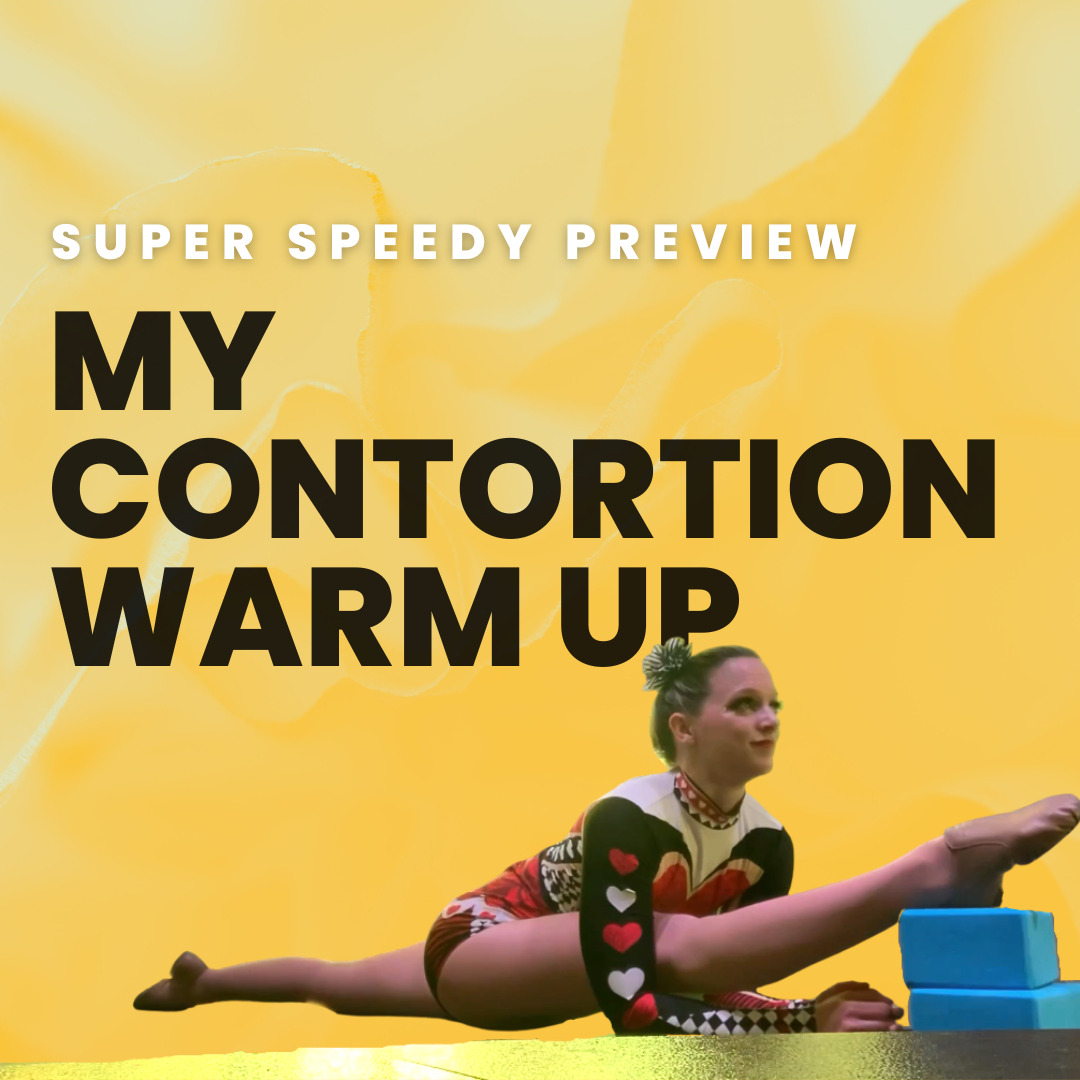
My Contortion Warm Up Routine (An Example)
Since it’s October and that usually means the start of a heavier performing season (really from Halloween-ish themed things all the way to the Holidays and NYE), I thought I’d do some more posts this month about performing as a contortionist.
I had two (!) contortion gigs last week, both using my lollipop lyra, an aerial-ish apparatus that’s basically a big hoop (lyra) that sits on top of a stage pole that I do bendy tricks in. For one of them I filmed my warm up routine so I could share what a typical contortion warm up (for me) tends to look like.
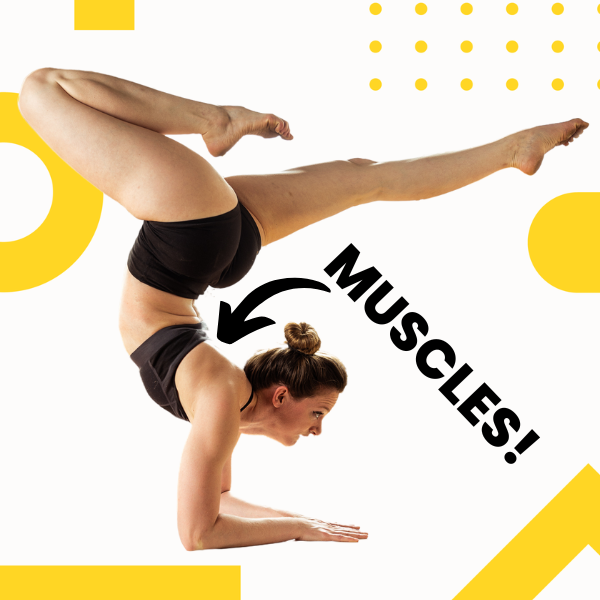
Shoulder Conditioning for Contortion Forearm Stands
Whether you’re just starting to work on inversions like forearm stands and handstands, or have been practicing for some time but need help learning to balance, working on strengthening your shoulders - especially your good ol’ rotator cuff - will be a big help in stability and feeling controlled in these poses.

Middle Split Oversplits: A Primer on Technique
I’m not going to lie - I have a love/hate relationship with middle oversplits. I love how big a difference they can make in how comfortable my “regular” middle splits feel. But I hate how the oversplits feel when I practice them (personally, I think they’re hard AF compared to front leg oversplits, but that’s how I’ve always felt about middle vs. front splits). But despite them being an exercise I minorly dread, I think they’re an important tool for students who have very middle split-y aspirations. Just like with front splits and front oversplits, middle oversplits can be a sneaky way for students who are oh-so-close-to-flat to challenge their hips a tiny bit more to help them touchdown.
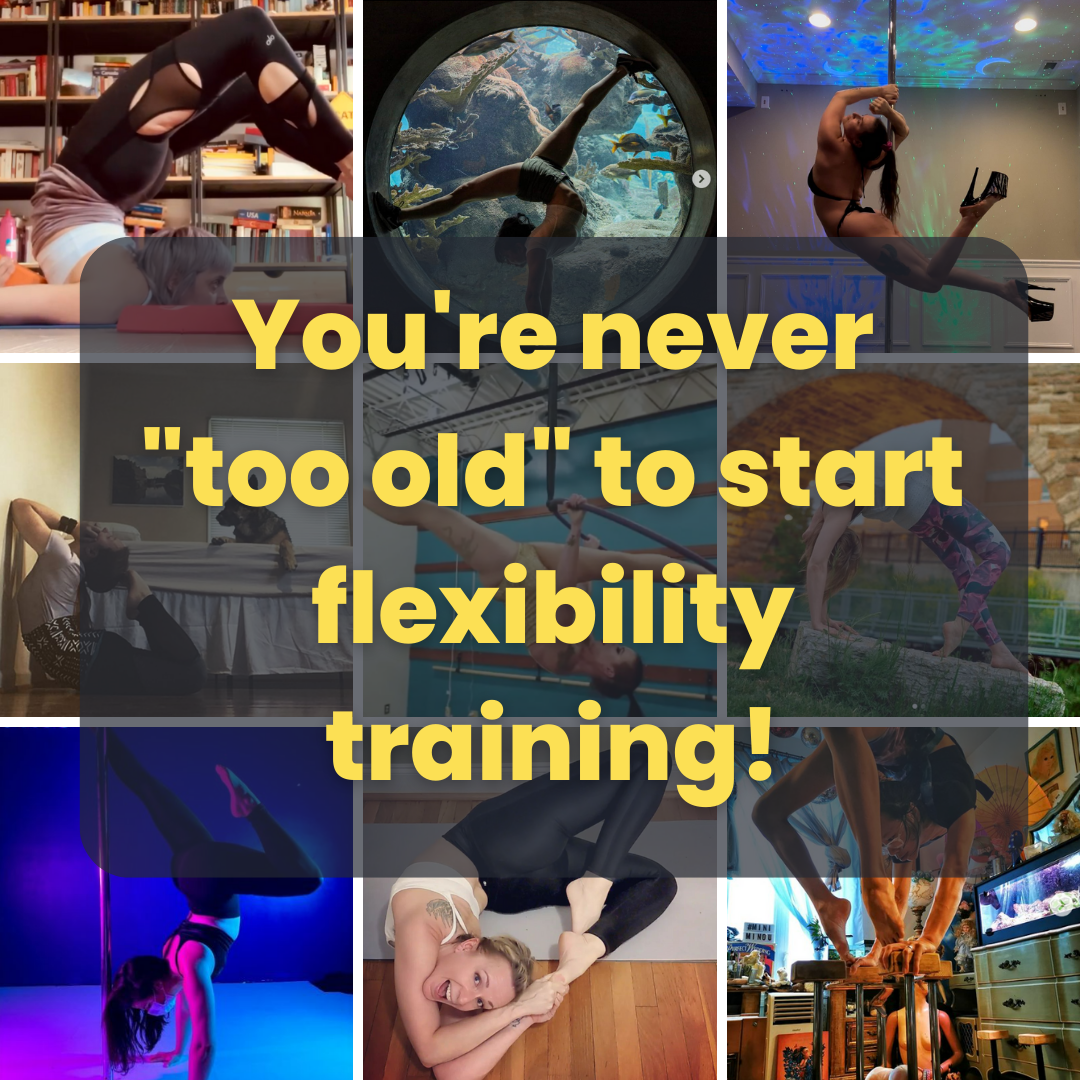
Am I Too Old to Start Contortion? (Spoiler Alert: HECK No)
I see this question all. the. time. on Reddit (shoutout to all my flexy practitioners in r/flexibility!) and all over the internet for that matter.
The short answer is no you’re not “too old,” literally anyone can start working on flexibility even if you’ve been a total slug your whole life.
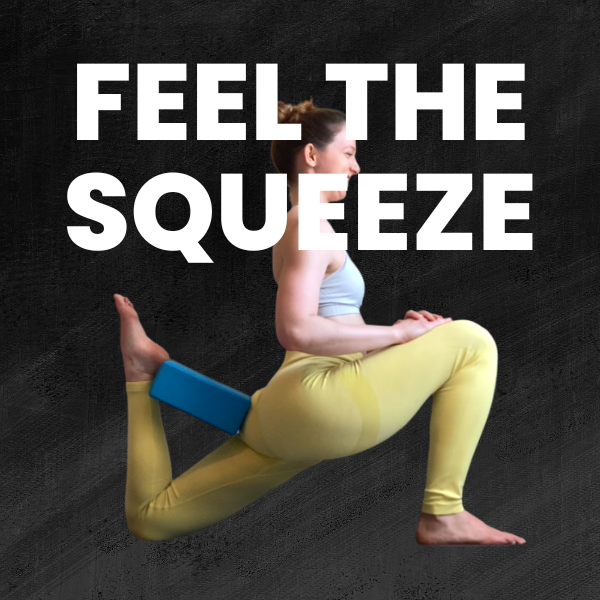
Advanced Quad and Hip Flexor Stretches for Contortion
If you’ve got relatively flexible hip flexors and quads (ex. you can easily pull your heel to your butt in a standing quad stretch, and/or you have flat splits) - it may be time to up your hip work for those muscle groups.
These are all deep anterior (front of the) hip stretches that may make you feel your quads like you’ve never felt them before!

How to Get More Open Shoulders in a Bridge
If you feel like most of the bend in your bridge comes from your low back - you’re not alone! For the vast majority of the population, a bridge (or “full wheel” in yoga) is a low-back dominant pose, taking advantage of the natural curve of your lumbar spine. If your bendy aspirations are to even out your bend (and progress to deeper backbending poses), you’ll need to learn to recruit your shoulders and upper back.

How to Fake a Split: The “Illusion” Split
Whether you are oh-so-close to flat splits, or still quite a ways away from the floor - anyone can fake a split if you do it at the right angle! And “faking” your split is easier and more comfortable than your regular split, so it’s fun to learn how to do.
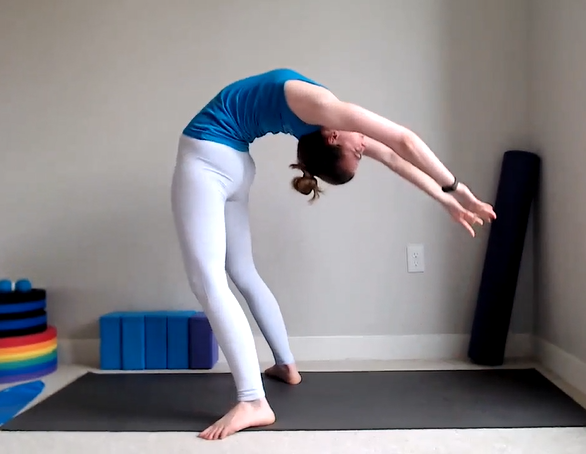
How to Stand Up from a Bridge (aka “Raise the Dead”)
Being able to stand back up from a bridge is a common goal for contortionists and advanced yogis alike - and it’s quite the challenge given the amount of glute, hip and core strength required! This is an advanced skill I would suggest working with a coach on if you haven’t done any form contortion training/classes before to make sure you understand the proper engagement to safely get into deep backbends.
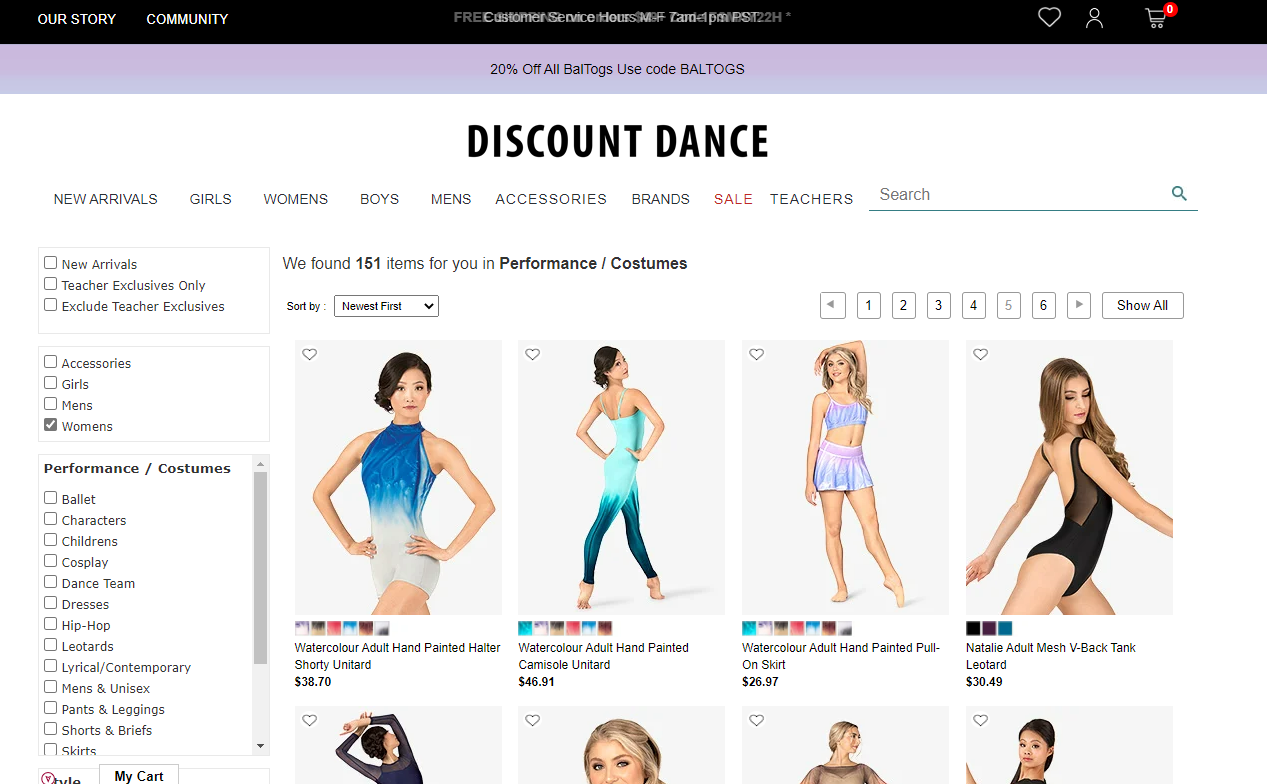
Where to Buy Contortion Costumes on a Budget
Looking for a costume for your first student showcase? Want something fun and new for an upcoming photo shoot? Seeking a more “professional” costume for corporate or professional performing opportunities? I’ve got you covered!
